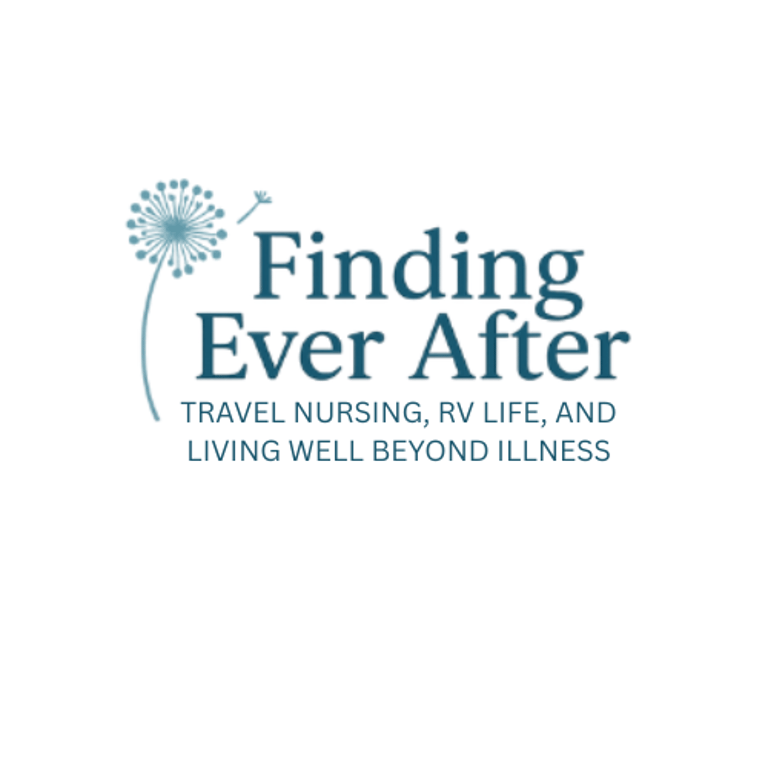Finding Your Meaning: Purpose and Identity Beyond Illness
A chronic illness diagnosis can shake your sense of identity and self-worth. This post offers compassionate, real-life advice on finding purpose beyond illness—through grieving, daily routines, advocacy, and redefining strength. You are still you, and your life can hold meaning, even in this new chapter.
FACING DIAGNOSIS & FINDING ACCEPTANCE
Velvet Larrabee
5/12/20255 min read


When you’re diagnosed with a chronic illness, it can feel like your identity has been stolen overnight. Suddenly, the things that once defined you—your career, your hobbies, your independence, even your sense of self-worth—feel shaky or out of reach. It’s common to wonder: Who am I now? What’s my purpose if I can’t do what I used to?
If you’ve had those thoughts, you’re not alone. They don’t mean you’re weak or “giving up.” They mean you’re human, navigating a life shift you never asked for. Chronic illness doesn’t just affect your body—it rewrites parts of your story. And while that can be devastating, it can also open space for new meaning, new routines, and even new forms of strength you never imagined.
This article isn’t about “staying positive” or pretending everything is fine. It’s about helping you find a sense of purpose and identity that goes beyond illness—so that you can live a life that feels meaningful, even in the midst of uncertainty.
1. Naming the Loss: Why Identity Feels Shaken
The first step in rebuilding your sense of meaning is acknowledging that yes, chronic illness changes identity. That’s not weakness, and it’s not in your head.
You might grieve the old version of yourself: the runner, the traveler, the full-time worker, the “always dependable” friend. Illness can strip away roles you once held with pride, and that hurts.
🌱 Permission granted: Grieve. Cry. Be angry. There is no moving forward without acknowledging what’s been lost. But remember: identity is not fixed. You are more than any single role you once played.
2. Redefine Strength (It’s Not What You Think)
For many of us, “strength” once meant powering through, working long hours, saying yes to everything, and pushing limits. With chronic illness, that definition no longer fits.
But here’s the reframe: strength now looks like adaptability. It’s knowing when to rest, when to ask for help, and when to say no. It’s choosing to keep showing up for your life, even when it looks different than you pictured.
Try this exercise: Write down three ways you’ve shown resilience since your diagnosis (maybe it’s learning to advocate for yourself with doctors, maybe it’s getting out of bed on a flare day, maybe it’s still finding joy in small things). That’s strength.
3. Build Purpose into Your Daily Routine
Purpose doesn’t always mean grand achievements. It can live in the small rhythms of daily life. Creating routines that ground you helps you feel like more than just a “patient.”
✨ Actionable ideas for purposeful routines:
Morning check-in: Ask yourself, What does my body need today? Build your day around that answer instead of pushing through.
Tiny rituals: Light a candle while you take meds, sip tea during journaling, or step outside to breathe fresh air once a day. Small acts anchor you.
Creative outlets: Try painting, knitting, writing, photography, or music. Expression is healing, and creating something reminds you that you are more than illness.
Gratitude practice (realistic version): Not the “toxic positivity” kind. Just jot down one small thing each day that brought comfort or joy, like your pet snuggling close or your favorite song playing.
Routine builds stability. Stability builds identity.
4. The Power of Advocacy (Turning Pain Into Purpose)
One of the most empowering ways to reclaim identity is through advocacy. You don’t have to stand on a stage or lead a nonprofit to make a difference. Advocacy can be as simple as:
Educating friends and family about your illness.
Joining an online support group and encouraging someone who’s struggling.
Sharing your story through a blog, Instagram post, or local support meeting.
Volunteering with patient organizations (many have virtual opportunities).
When you use your experience to help someone else feel less alone, you transform pain into purpose. That’s powerful.
5. Nurture Relationships That See You (Not Just the Illness)
Chronic illness can change relationships. Some people won’t get it. Some will drift away. But others—the keepers—will stick around and see the whole you.
Lean into those relationships. Invest in the people who listen, respect your limits, and still see you as you, not just a diagnosis.
And remember: identity is not only what you think of yourself, but also how you are mirrored back by others. Choose mirrors that reflect your worth.
6. Give Yourself Permission to Dream (Even if Plans Change)
One of the cruelest lies illness tells us is that the future is gone. The truth? The future is different, not gone.
You may need to adjust dreams—trade “run a marathon” for “complete a gentle yoga series,” swap “travel the world in a year” for “take one meaningful trip a season.” Adjusted dreams are still dreams.
💭 Exercise: Write down 3 things you still want to experience in the next year. Make them doable and meaningful. Maybe it’s learning a new skill online, planting a garden, or reconnecting with an old friend. These mini-dreams remind you that you are still moving forward.
7. Reclaim Your Story (You Are More Than Illness)
It’s easy to let illness become your headline. “I’m the one with lupus.” “I’m the one who can’t work anymore.”
But identity is multi-layered. You are still the friend who loves bad rom-coms, the parent who tells silly jokes, the artist, the foodie, the gamer, the dreamer. Illness is a chapter—not the whole book.
Try reframing how you describe yourself:
Instead of, “I’m sick,” try, “I’m a writer and a gardener who happens to live with chronic illness.” Small shifts matter.
8. Professional Support: Therapy & Counseling
Sometimes, the emotional weight of chronic illness is too much to carry alone. A therapist—especially one familiar with chronic illness—can help you navigate grief, rebuild self-worth, and find meaning again.
Don’t think of it as weakness. Think of it as adding another person to your “care team”—someone for your emotional health as much as your physical.
9. Spirituality & Mindfulness (If It Speaks to You)
For some, chronic illness opens doors to spiritual exploration or mindfulness practices. This doesn’t have to mean religion (though it can). It might mean meditation, yoga, breathing practices, or connecting with nature.
Mindfulness helps you anchor in the present moment instead of spiraling into what you’ve lost or what might come. And often, meaning is found in the present.
10. A Note on Self-Worth
Illness can make you feel like a burden. Please hear this: your worth has nothing to do with productivity, paychecks, or how much you can “do.”
Your worth is inherent. It’s in your presence, your laughter, your kindness, your being. Even if all you did today was survive—that is enough.
Final Thoughts: You Are Still You
Finding meaning beyond illness doesn’t happen overnight. It’s a gradual process of grieving, adjusting, experimenting, and redefining. Some days you’ll feel grounded, others you’ll feel lost again—and that’s okay. Healing identity is not linear.
But slowly, you’ll realize: illness may change your body, your routines, even your dreams, but it cannot take away your humanity. It cannot erase your capacity for joy, love, creativity, and connection.
You are still you. A new version, yes—but still whole, still worthy, still capable of living a meaningful life.
